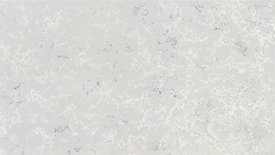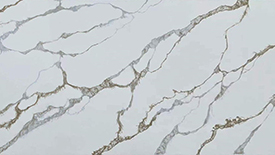
Smarter Quartz can be cleaned easily with a mild detergent, water and a soft cloth or paper towel, then rinse and dry thoroughly. Noted Abrasive cleansers or harsh scouring pads and cleansers that contain bleach should not be used with quartz. Engineered stone surfaces do not require polishing to keep them shiny and smooth, but they should be cleaned gently to maintain their distinctive shine.

STAINS AND SCRATCHES
While quartz countertops resist to scratches, scuffs, dents, stains and burns, these surfaces are not damage-proof. If a countertop is marked by a permanent marker or dye, rinse the area with water as soon as possible, then apply a cleansing product approved for stone care if the stain is still visible. Clean the area again with water after applying the cleanser.
Although quartz is resistant to stains from juice, wine, coffee and other food substances, it is best to wipe up spills immediately to prevent possible stains. Do not use metal utensils or knives directly on the quartz surface.


PREVENTING CHEMICAL DAMAGE
Avoid exposing SQ Quartz to chemicals and solvents, especially paint removers or furniture strippers containing trichlorethane or methylene chloride. Avoid contact with nail polish remover, bleach or cleansers that contain bleach, bluing, permanent markers or inks. While casual exposure to alkaline materials will not damage quartz surfaces, highly alkaline (high-pH) cleansers are not recommended when cleaning. If any of the substances listed above come into contact with quartz, rinse the exposed surface immediately and thoroughly with plenty of clean water.
PROTECTING QUARTZ SURFACES
Quartz product does not require sealants, and its non-porous surface makes it a durable, sanitary option for kitchens or bathrooms. To ensure that you get the most life from your countertops and that your warranty covers any unexpected damages, follow the manufacturer's instructions for care and maintenance of quartz countertop.









